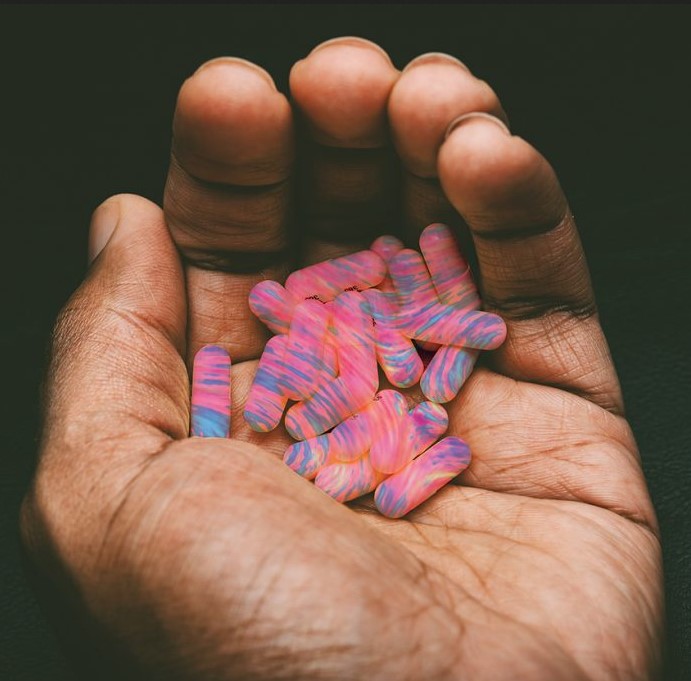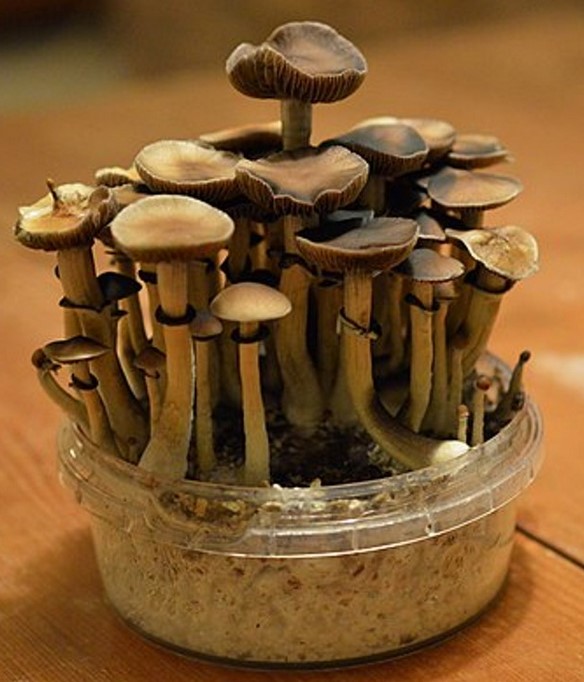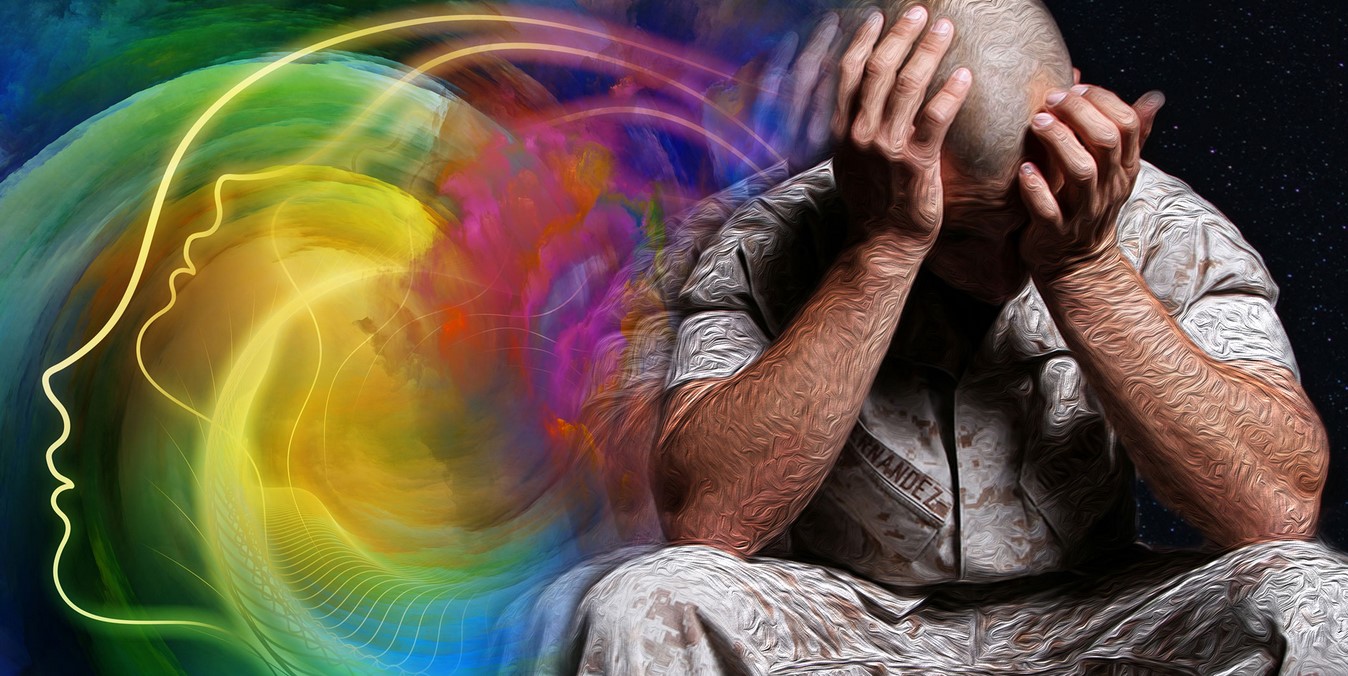Non classé
Psilocybin and PTSD: A Promising Solution?
Post-traumatic stress disorder (PTSD) is a severe condition in which the physical effects of a traumatic event influence people’s daily activities.
The most common treatment for PTSD is psychotherapy combined with antidepressant medications, although some patients may continue to experience symptoms after completing this therapy approach.
Psychedelics have been found to be both safe and useful in psychotherapy. Psilocybine, the psychoactive component in magic mushrooms, has shown to be effective in treating a variety of psychological issues – could it help with post-traumatic stress disorder?
PTSD and Psychedelic-Assisted Psychotherapy
What Is PTSD?

Post-Traumatic Stress Disorder (PTSD) is an anxiety disorder that develops as a result of a traumatic experience. Traumatic events such as automobile accidents, domestic violence, and combat can all induce it. It might manifest itself immediately following the trauma or take weeks to months to develop.
Symptoms
Symptoms of PTSD include:
- Cognitive effects: repeated recall of the traumatic experience through intrusive thoughts, flashbacks, and nightmares
- Effects of mood: depression and anxiety
- Emotional effects: psychological instability, impulsivity, and hyperarousal
- Impaired social abilities
What Causes PTSD?
The hypothalamic-pituitary-adrenal axis (HPA axis) is the name given to the interaction between the hypothalamus, pituitary gland, and adrenal glands in the body.
The HPA axis is linked to the amygdala, a brain region involved in anxiety, stress, and memory.
In post-traumatic stress disorder (PTSD), a traumatic event activates the HPA axis and links it to the amygdala, recording the memory of the incident. Because of this memory encoding, sights, scents, and sounds may re-trigger a traumatic memory and elicit the same physiological response as if the experience were happening again.
Psilocybin and Psychedelic-assisted Psychotherapy
Patients are given psilocybin under a therapist’s supervision when being tested or used for therapeutic purposes.
Patients attire blindfolds throughout the experience and listen to music as they explore how they feel inside and any thoughts that occur to them. Psilocybin sessions are frequently followed by pre-drug preparation sessions and post-drug integration sessions, during which the therapist assists patients in better comprehending their psychedelic experience.
Psychedelic weekends are frequently followed by pre-drug preparation sessions and post-psychedelic integration sessions.
Psychedelic-assisted psychotherapy (PAP) is a form of talk therapy in which psychedelic medications, such as psilocybin, are used. Other mind-altering drugs may also be utilized in PAP.
Some of the psychedelic medicines considered potential PAP therapies for PTSD are listed below.
Classical Psychedelics
Psychedelics, such as psilocybin, LSD, and DMT, have been shown to improve cognitive flexibility, which is the ability to shift ideas quickly. These results imply they may be useful in assisting patients in modifying their memories.
Despite the fact that there is little contemporary study on classical psychedelics in treating post-traumatic stress, research done by a Dutch psychiatrist in the 1980s showed that LSD helped patients process traumatic memories.
In one study on healthy people, researchers proved that a single dose of LSD enhanced positive behavior and life-approval attitudes after only a single administration. Psilocybin has also been found to promote mental health in individuals suffering from depression.
A recent theory put forward by a team of researchers is that some of the psychedelic DMT-containing brew’s neurobiological processes may counteract some of the symptoms of PTSD.
MDMA
MDMA is the most researched psychedelic medication for treating post-traumatic stress disorder. MDMA, often known as ecstasy, has the ability to enhance the therapeutic relationship between a therapist and a client. It can also help reduce an amygdala (the part of the brain associated with anxiety) that is overly activated in people with PTSD.
From 2004 to 2017, six separate studies investigated the use of MDMA in treating post-traumatic stress disorder (PTSD). The data revealed that when patients received psychotherapy with MDMA and therapy alone, they had a greater reduction in symptoms than if they received psychotherapy without MDMA. Patients who took MDMA also showed a greater reduction in depressive symptoms than those who didn’t take it.
Psilocybin-Assisted Therapy for Treatment of PTSD
So far, psilocybin-assisted therapy has shown to be beneficial in treating
- Major Depressive Disorder
- Anxiety and depression associated with end-of-life illness
- Obsessive-Compulsive Disorder (OCD)
- Substance-use disorders
Evidence for Psilocybin as a Treatment for PTSD

Psilocybin was found to improve fear extinction in one animal research. Fear extinction is the reduction of rodents’ fear responses to previous caused by a traumatic experience.
Psilocybin may aid in the reduction of physiological stress and fear responses to distressing memories by enhancing fear extinction.
People with post-traumatic stress disorder who took psilocybin during therapy had greater improvement rates than those who did not, according to researchers at the Medical University of South Carolina.
Psilocybin may help people with post-traumatic stress disorder feel less alone and cope with their feelings of isolation.
Patients in trials looking at psilocybin as a treatment for depression have reported feeling less avoidance and greater openness and connectedness. These impacts may counteract some of the social symptoms associated with PTSD, such as loneliness.
Furthermore, numerous war veterans have reported anecdotal evidence showing that psychedelic chemicals, such as psilocybin, can assist with their post-traumatic stress disorder.
One of these people is Corporal Murray. For five years, he served in the UK military, but his experiences afterward caused him to suffer from post-traumatic stress disorder (PTSD). He said:
“It allowed me to face things I was unwilling to deal with, and it has truly altered my life…I strongly believe I left my post-traumatic stress disorder behind in those sessions. I’m no longer violent or shut off. I reclaimed my freedom.”
Biology of Psilocybin-Assisted Psychotherapy in PTSD
Neuroplasticity
Psilocybin has been shown in studies to improve neuroplasticity in the brain. The ability of the brain to reorganize and develop new connections between nerve cells is known as neuroplasticity.
Increased neuroplasticity allows for improved cognitive flexibility, or the ability to modify thought patterns and viewpoints.
Psilocybin therapy may be used to help people with post-traumatic stress disorder change the thought pattern patterns connected with traumatic memories by boosting cognitive flexibility.
Amygdala Reactivity
Psilocybin has been found to dampen the activation response of the amygdala in healthy individuals.
Overactivation of the amygdala is linked with post-traumatic stress disorder (PTSD), and psilocybin administration might help patients work through traumatic events during therapy by decreasing the activity of this brain region.
Potential role in the circadian cycle
Insomnia is a typical PTSD symptom that can be characterized by a disruption in someone’s circadian (sleep/wake) cycle.
Psilocybin has been shown to promote melatonin release in rats, a chemical that plays an important role in establishing the circadian rhythm. It’s possible that psilocybin aids PTSD patients in sleeping better by encouraging melatonin release. However, it’s unclear whether human beings may also be stimulated to produce more melatonin by psilocybin.
Psilocybin appears to have some antidepressant effects in patients with depression, according to several research. Researchers have also suggested that the sleep-wake cycles of persons treated with psilocybin might contribute to its antidepressant efficacy.
Summary on Psilocybin and PTSD
The biological and psychological impacts of psilocybin may help to explain why it is a useful therapy tool that can be teamed with psychotherapy for PTSD. The research, however, has several shortcomings.
Although there is currently no evidence that psilocybin therapy for PTSD is effective in the long term, it remains a possibility. To determine whether psilocybin therapy for PTSD is clinically beneficial, long-term research comparing its effects to traditional therapy is required.
It’s possible that psilocybin and other psychedelics may be used to cure PTSD in the future. The Heroic Hearts Project is a non-profit organization working to link military veterans with psychedelic therapies in order to conduct more research on their effectiveness. More information may be found on their website (see the article sources below).


